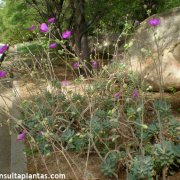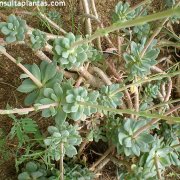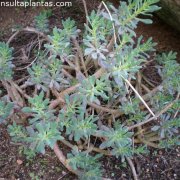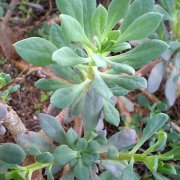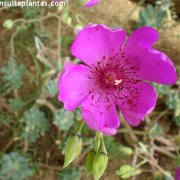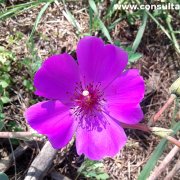Care of the succulent plant Calandrinia crassifolia or Purslane |
|
The genus Calandrinia, family Montiaceae, includes 150 species of perennial and annual plants native to South America, Australia, and North America. Some species are: Calandrinia crassifolia, Calandrinia galapagosa, Calandrinia ciliata, Calandrinia calyptrata, Calandrinia balonensis. Common names: Purslane, Redmaid. This species is native to Chile. They are perennial plants with thick creeping stems that reach 50 cm (1.64 feet) in height when they bloom. They have fleshy, grayish-green, bluish and light green spatulate leaves. The showy flowers appear on long flower stalks above the leaves and can be purple, red, or white. Purslane is used in pots, on rockeries and on borders. It's ideal for Mediterranean coastal gardens. Calandrinia crassifolia grows in full sun or semi-shade exposure in Mediterranean climates. It does not resist frost; the winter safety temperature is 5 ºC (41 ºF). As soil you can use a commercial substrate for cacti and succulents. It can be grown on stony and sandy soils. Redmaid is a drought-resistant plant that need moderate watering, waiting for the substrate to dry. In winter, reduce the water a lot. Calandrinia crassifolia does not need fertilizers. Prune off wilted flower stems. Purslane resists the usual pests but are sensitive to fungal attack if there is excess moisture. Redmaid propagates by seeds sown in spring or by stem cuttings (with rooting hormones). |
Images of the succulent plant Calandrinia crassifolia or Purslane |
Find plants
Calandrinia crassifolia or Purslane | Care and Growing
© 2026 FavThemes
